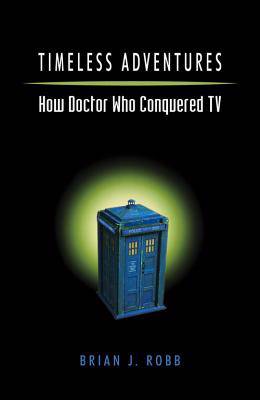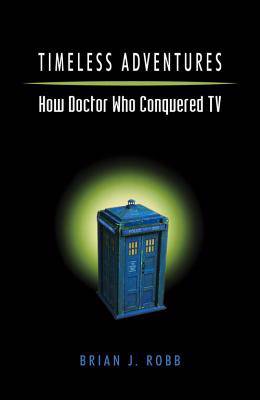
- Retrait gratuit dans votre magasin Club
- 7.000.000 titres dans notre catalogue
- Payer en toute sécurité
- Toujours un magasin près de chez vous
- Retrait gratuit dans votre magasin Club
- 7.000.0000 titres dans notre catalogue
- Payer en toute sécurité
- Toujours un magasin près de chez vous
Description
An expanded edition of the critical history of Doctor Who covering the series' 45 years, from creation to triumphant reboot
Opening with an in-depth account of the creation of the series in the early 1960s, each decade of the show is tackled through a unique political and pop cultural historical viewpoint, exploring the links between contemporary Britain and the stories Doctor Who told, and how such links kept the show popular with a mass television audience. This book reveals how Doctor Who is at its strongest when it reflects the political and cultural concerns of a mass audience (the 1960s, 1970s, and 21st Century), and at its weakest when catering to a narrow fan-based audience (as in the 1980s). Chapters range from discussions on the cultural and political relevance of Doctor Who monsters like the Daleks (based on lingering wartime fears) and the Cybermen (1960s spare part replacement surgery), through to themes like energy and the environment in the 1970s (Doctor Who stories tackled big real-life themes in a fantasy format and so connected with a mass audience). The book also addresses the cancellation of the show in the late 1980s (following the series becoming increasing self-obsessed) and the ways in which a narrowly-focused dedicated fandom contributed to the show's demise and yet was also instrumental in its regeneration for the 21st century under Russell T. Davies, and analyzes the new series to reveal what has made it so popular, reflecting real world issues like consumerism and dieting.
Spécifications
Parties prenantes
- Auteur(s) :
- Editeur:
Contenu
- Nombre de pages :
- 304
- Langue:
- Anglais
Caractéristiques
- EAN:
- 9781843441564
- Date de parution :
- 01-04-14
- Format:
- Livre broché
- Format numérique:
- Trade paperback (VS)
- Dimensions :
- 135 mm x 196 mm
- Poids :
- 285 g

Les avis
Nous publions uniquement les avis qui respectent les conditions requises. Consultez nos conditions pour les avis.






